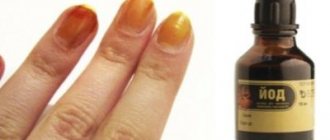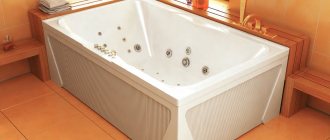Why does the temperature rise during illness?
A disease is usually called a condition of the body in which it cannot perform certain functions, or performs them differently than in a healthy state. For example, during the period of acute respiratory viral infection, breathing becomes difficult, sweating increases, and the temperature rises.
With the help of a physiological reaction such as an increase in body temperature, the body begins to fight the identified foreigner, which can be either an infection or an exacerbation of a chronic disease. High temperature becomes a signal for the production of interferon, a special blood protein that regulates changes in cell structure. In other words, an increase in temperature is the first signal to the beginning of an internal struggle.
Some people tolerate hyperthermia easily, while others need to take antipyretic drugs quickly. Some people can continue to perform their duties when the temperature rises, while others cannot lift their heads from the pillow. But both of them, as a rule, are interested in one thing - is it possible to take a bath when the body temperature is above normal.
Rules for bathing children
When a child's temperature rises, he or she must be bathed very carefully. It is forbidden to put the baby in a bath with hot water. This will cause the fever to worsen. There is also a risk of blood flowing to important organs, which will cause a decrease in pressure. In this case, the child’s skin in the area of the nasolabial triangle will turn pale.
To avoid negative consequences, you need to follow simple rules:
- Start bathing 1 hour after taking the antipyretic drug. Before starting the procedure, you need to measure the child’s body temperature - it should not exceed 37.5 degrees.
- You need to wash your baby in the shower. Don't put him in a hot bath.
- The water should have a temperature that is comfortable for the child.
- After completing the water procedure, the baby should be carefully wiped dry and put to bed.
- After the bath, give the child a warm drink.
Why is it not recommended to swim when you are sick?
Everyone has heard more than once that you should not swim when you are sick. But few people can explain what this is connected with. In fact, there are some restrictions that have a medical basis. Taking a bath during a period of rising temperature is not recommended for several reasons:
- While staying in a warm bath, the load on the heart and blood vessels increases. A patient who has an elevated body temperature feels chills and wants to warm up. To warm up in the bath, you have to make the water temperature at least a degree higher than your body temperature. With hyperthermia at 38˚C, a person intuitively wants to make the water warmer: from 38.5˚C to 39˚C, which will further dilate the blood vessels, accelerate blood flow and increase the heart rate. For a person at risk, this could result in a stroke or a dangerous surge in blood pressure.
- A cool bath, which patients sometimes take in order to lower their own temperature, can have the opposite effect: when the blood vessels come into contact with cool water, they will begin to narrow, which means they will not be able to give off the heat produced in excess by the body. As a result, the temperature of the internal organs will only increase.
- A long stay in the bath will moisturize the airways as effectively as possible. Due to this, all the dried mucus crusts swell, soften and begin to leave the respiratory system through a cough and runny nose. Instead of properly coughing and blowing your nose, a person most often becomes frightened by this condition and hastily leaves the bathroom, returning to a dry bedroom. This is a terrible mistake, because the increased mucus begins to dry out again in the bronchi and lungs, which can even lead to blockage of the airways or other complications, such as pneumonia.
In addition, intense swelling of accumulated mucus in the nasal passages, if the patient behaves incorrectly, can develop into otitis media, when a stuffy nose does not allow mucus to escape, and it rises up the Eustachian tube.
Is it possible to wash in a bath, shower, or sauna at a temperature of 37, 37.5, 38 or higher?
Yes, according to many experts, swimming is not only possible, but also necessary. The thing is that when you have a cold, you sweat a lot. A lot of sweat is produced, which must be washed off so as not to clog the glands. But the water temperature should be quite low. That is, you cannot take a warming bath. This can lead to overheating and increase the load on the heart. The optimal temperature is 34-37 °C. You should not go to a bathhouse or sauna at high temperatures.
Is it possible to wash in a bath, shower, or sauna at a temperature of 37, 37.5, 38 and higher?
Is there any benefit to swimming at high temperatures?
In order not to harm yourself, it is important to understand the fundamental difference between the two concepts: washing and bathing. To wash means to remove dirt and keep the body clean. Swimming means staying in water for a long time without paying much attention to hygiene procedures. Based on the above difference, we can obtain a truthful statement: washing during illness, even at elevated body temperature, is allowed.
The disease is always accompanied by intense sweating. This means that there is always a lot of biological material in the pores of the body for the proliferation of bacteria. It’s not scary if the activity of these bacteria only leads to an unpleasant odor from the patient. But pores clogged with dirt and sweat can turn into boils and ulcers. Therefore, it is very important to wash off all dirt from the body.
Some rules
Despite the fact that it is not prohibited to take a shower at elevated temperatures, some rules should be taken into account. After all, the body fights the disease. If you carry out water procedures incorrectly, your condition can worsen.
If you take a bath or shower when you are sick, you should adhere to the following recommendations:
- It is prohibited to combine the bath with alcoholic beverages. A large number of people drink mulled wine or other alcohol when they are sick. Doctors do not support this treatment. It is recommended to give up alcohol and use traditional or folk methods to combat the disease. If a person decides to drink an alcoholic drink, then he should remember that this cannot be done in the bath.
- When the temperature rises, you should forget about hot water. Otherwise, it will begin to increase even more, which will negatively affect the person’s condition. The water should have a temperature of about 34-38 degrees.
- You should stay in the bathroom for as little time as possible. After all, the air humidity in this room is quite high. In the house it should be about 45-65%. But during the period when the premises begin to be heated, it decreases significantly, which negatively affects human health; he is susceptible to colds. But even with an increase in these indicators, the disease can develop. High humidity causes more mucus to appear in the nasopharynx and throat. This leads to an exacerbation of the runny nose. For this reason, doctors advise spending less time in the bathroom. To reduce the humidity in it, you can open the door.
Taking a bath or shower should take place in the evening. After these procedures, a person should immediately go to bed; first, it is better to dress well and drink a warm non-alcoholic drink.
Is it possible to make a bath beneficial for a patient?
When it comes to giving a bath to a sick person with a fever, it is important to remember two rules:
- Before going into the water, you need to restore nasal breathing. This is easy to do by placing any vasoconstrictor drops into the nose. As soon as the swelling subsides and the nasal passages are open to mucus, which begins to drain, you can go to the bath.
- The water temperature should be equal to body temperature. Hotter water is dangerous for the heart and blood pressure during this period. Cool temperatures will intensify chills and cause heat to spread in the internal organs.
When going into a bath with a temperature, you need to monitor the time. There is no need to stay in the water for more than 15 minutes. But if during this time the soaked mucus has not yet come out - the nose is flowing and a cough has begun, it is not recommended to leave the bathroom. In this case, you need to get out of the water, put on warm, dry clothes and stay there until intensive cleansing of the respiratory tract is completed.
Who is strictly contraindicated from water procedures for colds?
There are some chronic diseases in which, even in normal conditions, it is not recommended to take a hot shower. And if we add here an elevated temperature and a general weakening of the body, then contact with hot water is strictly contraindicated for the following diseases:
- Hypertensive diseases;
- Joint disease;
- Phlebeurysm;
- Diabetes.
At the time of illness, the body temperature is much higher than normal, and if you take a hot shower, then you increase it to the maximum limit and can provoke the following complications:
- Convulsions may occur;
- Vomit;
- Headache;
- Disruption of the heart and blood vessels.
People who have the above chronic diseases may simply not be able to withstand such a load.
When can you wash your hair?
Is it possible to wash your hair at a temperature? Doctors' opinions on this topic were sharply divided. Some argue that this should not be done because of the risk of getting meningitis. We must admit that there is some truth in this point of view. When the temperature is high, you need to avoid hypothermia, and first of all, keep not only your feet, but also your head warm. However, washing your hair at a low temperature of 37 degrees is practically safe if you do not intend to go out into the cold air afterwards.
But it is necessary to remember that the water temperature should be no more than 30-34 degrees to avoid overheating.
If you still decide to wash your hair at a temperature, you need to adhere to some rules that doctors recommend following in order to avoid unpleasant consequences. After washing, wrap your head in a towel and then dry it with a hairdryer. It is best to carry out this procedure in the evening so that you can immediately lie down under the covers and warm up.
Rules for accepting the procedure
When the child has a fever, he sweats a lot, so it is necessary to bathe and wash his hair.
There is an opinion that you should never wash your hair at elevated body temperatures. However, this is not entirely true: it all depends on the nature of the disease, body temperature, and the patient’s well-being.
In most cases, water procedures are necessary, but certain restrictions must be observed.
Patients with a low fever are allowed to wash if the following conditions are met:
- Instead of a bath, it is better to take a shower: the hygienic effect will be the same, and general warming of the body, which is undesirable during hyperthermia, will not occur.
- The temperature of the water environment should be warm, but not hot - no higher than 37 degrees.
- The duration of the procedure should be kept to a minimum - no more than a quarter of an hour.
- Dry your hair quickly using a hairdryer.
- It is advisable to carry out the procedure in the evening so that you can immediately go to bed. During the daytime, you should not go outside for three to four hours after a shower.
- It is necessary to avoid drafts, which are doubly dangerous when hair is wet, for which purpose all doors and vents must be closed while washing them.
- If a person’s blood pressure rises along with an increase in temperature, it is better not to wash his hair.
During a cold or bronchitis, it is advisable to take water procedures at home, where the patient is able to control the degree of heating of the water. Despite the widespread opinion about the benefits of a bath for colds, you can only take a steam bath if you do not have a fever.
Visiting the steam room and sauna is not recommended even in cases of low hyperthermia. Hot water and steam raise the ambient temperature, and when this is combined with increased body temperature, regardless of the severity, the effect can be extremely negative.











